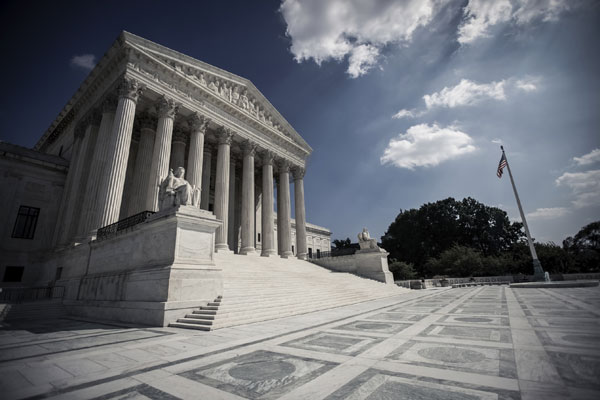- La Feria Native Soon To Retire From The Military This Summer
- Senior Eneece Avila Takes Pride in her State Title
- Dr. Noemi Infante, Harlingen Medical Center Open New Women’s Clinic
- Santa Rosa Cameron County Park Partially Reopens
- Santa Rosa Takes to Regionals Meet in Kingsville, Tx
- Long-Standing Nexstar Tower in La Feria Decommissioned
- Lionettes Powerlifting Meet
- Local Business Holds Event to Benefit RGV Shriners Club
- Knights of Columbus Holds it’s 30th Annual Golf Tournament
- KGBT Tower Dismantled
‘One Person, One Vote’ Rule Reaffirmed in TX Case
- Updated: April 15, 2016
by Mark Richardson
AUSTIN, Texas – The U.S. Supreme Court, in a unanimous decision, has rejected a conservative challenge to the “one person, one vote” rule in how states draw their legislative districts.
In Evenwel v. Abbott, a case that originated in Texas, the court ruled that districts must be drawn according to the total population, not just the voting-age population.
Kathay Feng, national redistricting director for the watchdog group Common Cause, says Justice Ruth Bader Ginsberg’s majority opinion reinforces the premise that, under the Constitution, every person counts.
“You can’t base whether or not you’re going to give police services or assistance from the fire department based on whether you’re old enough to be eligible to vote or to register to vote,” says Feng. “It’s got to be based on thinking about the total population.”

The U.S. Supreme Court has ruled on a Texas case, reaffirming the “one person, one vote” rule in drawing legislative districts. Photo: P_Wei/iStockphoto
The case was a 2014 challenge by a Texas-based conservative group, the Project on Fair Representation, which sought to change the way districts were drawn in the Texas State Senate.
The group issued a statement saying it is disappointed in the ruling.
Feng says the concept of including every person, and not just registered voters, in drawing political boundaries should not be a partisan issue.
“There are a lot of people in all parts of the political spectrum who fundamentally believe that this is not a red-blue fight,” she says. “This is something that’s fundamental to our democracy.”
Feng adds the court challenge could have disproportionately affected the nation’s growing Hispanic population.
One advocacy group for Latino political involvement estimates more than half the nation’s Latino population would be excluded if only eligible voters were counted in political districts.






